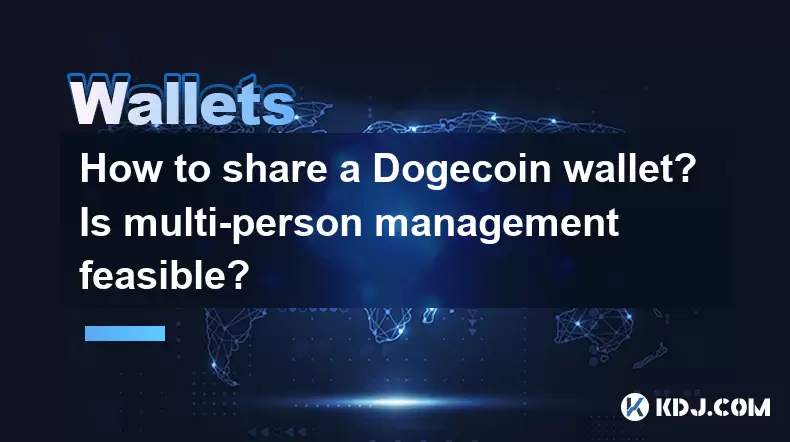-
 Bitcoin
Bitcoin $114500
-0.31% -
 Ethereum
Ethereum $3648
1.11% -
 XRP
XRP $3.033
-0.27% -
 Tether USDt
Tether USDt $0.9999
-0.01% -
 BNB
BNB $758.5
-0.32% -
 Solana
Solana $167.5
1.48% -
 USDC
USDC $0.9998
-0.02% -
 TRON
TRON $0.3331
0.74% -
 Dogecoin
Dogecoin $0.2039
0.25% -
 Cardano
Cardano $0.7419
-0.46% -
 Hyperliquid
Hyperliquid $39.21
2.66% -
 Stellar
Stellar $0.4049
-1.95% -
 Sui
Sui $3.483
-0.56% -
 Bitcoin Cash
Bitcoin Cash $570.8
2.89% -
 Chainlink
Chainlink $16.67
-0.57% -
 Hedera
Hedera $0.2470
-1.57% -
 Ethena USDe
Ethena USDe $1.001
0.00% -
 Avalanche
Avalanche $22.36
1.52% -
 Litecoin
Litecoin $123.4
4.35% -
 UNUS SED LEO
UNUS SED LEO $8.989
0.09% -
 Toncoin
Toncoin $3.324
-2.40% -
 Shiba Inu
Shiba Inu $0.00001219
-1.30% -
 Uniswap
Uniswap $9.811
2.54% -
 Polkadot
Polkadot $3.662
-0.07% -
 Monero
Monero $295.5
-3.85% -
 Dai
Dai $1.000
0.01% -
 Bitget Token
Bitget Token $4.345
0.24% -
 Cronos
Cronos $0.1380
0.95% -
 Pepe
Pepe $0.00001044
-1.14% -
 Ethena
Ethena $0.5981
-4.24%
How to share a Dogecoin wallet? Is multi-person management feasible?
Sharing a Dogecoin wallet with multiple people is feasible using methods like sharing private keys, multi-sig wallets, or shared wallet services, each with unique security considerations.
May 12, 2025 at 12:01 am

Sharing a Dogecoin wallet and managing it with multiple people is a topic that has garnered significant interest within the cryptocurrency community. In this article, we will explore the various methods of sharing a Dogecoin wallet, the feasibility of multi-person management, and the steps required to implement these solutions effectively.
Understanding Dogecoin Wallets
Before diving into the specifics of sharing a Dogecoin wallet, it's essential to understand what a Dogecoin wallet is. A Dogecoin wallet is a software program that stores the public and private keys needed to interact with the Dogecoin blockchain. The private key is crucial as it allows the owner to spend the Dogecoins associated with the wallet.
Dogecoin wallets come in various forms, including desktop, mobile, web, and hardware wallets. Each type has its own set of features and security levels, which can impact how easily a wallet can be shared or managed by multiple people.
Methods of Sharing a Dogecoin Wallet
There are several ways to share a Dogecoin wallet, each with its own advantages and potential risks. Let's explore the most common methods:
1. Sharing the Private Key
The most straightforward method of sharing a Dogecoin wallet is by sharing the private key. This method grants full access to the wallet and all the Dogecoins it contains.
- Steps to share the private key:
- Open your Dogecoin wallet software.
- Navigate to the section where you can view your private key. This is often found in the settings or advanced options.
- Copy the private key.
- Share the private key with the intended recipient through a secure communication channel, such as an encrypted messaging app.
While this method is simple, it is also the most risky. If the private key falls into the wrong hands, the entire wallet can be compromised.
2. Using a Multi-Signature Wallet
A more secure method of sharing a Dogecoin wallet is by using a multi-signature (multi-sig) wallet. A multi-sig wallet requires multiple private keys to authorize a transaction, adding an extra layer of security.
- Steps to set up a multi-sig Dogecoin wallet:
- Choose a wallet that supports multi-sig functionality, such as Electrum-DOGE.
- Create a new multi-sig wallet by selecting the option in the wallet software.
- Specify the number of signatures required to authorize a transaction (e.g., 2 out of 3).
- Generate the public keys for each participant and share them with the other participants.
- Each participant will then import the multi-sig wallet into their own wallet software using the shared public keys.
This method allows for shared control over the wallet, making it suitable for multi-person management.
3. Using a Shared Wallet Service
Some services offer shared wallet functionality, allowing multiple users to access and manage a single wallet. These services often provide a user-friendly interface and additional features like transaction tracking and notifications.
- Steps to use a shared wallet service:
- Choose a reputable shared wallet service that supports Dogecoin.
- Create an account on the service and set up a new shared wallet.
- Invite other users to join the wallet by sending them an invitation link or code.
- Each user will need to create an account on the service and accept the invitation to join the shared wallet.
While convenient, it's important to research the security and privacy policies of the service before using it.
Feasibility of Multi-Person Management
Multi-person management of a Dogecoin wallet is indeed feasible, but it requires careful planning and implementation. The key to successful multi-person management is choosing the right method and ensuring all participants understand their roles and responsibilities.
Security Considerations
When managing a Dogecoin wallet with multiple people, security becomes a paramount concern. Each participant must take steps to protect their private keys and follow best practices for securing their devices.
- Best practices for securing a shared Dogecoin wallet:
- Use strong, unique passwords for all accounts related to the wallet.
- Enable two-factor authentication (2FA) wherever possible.
- Regularly update wallet software and devices to the latest versions.
- Use hardware wallets for storing private keys offline.
- Limit the amount of Dogecoin stored in the shared wallet to what is necessary for regular transactions.
Communication and Trust
Effective communication and trust among participants are crucial for successful multi-person management. All participants should agree on the rules for managing the wallet, including how transactions are authorized and how disputes are resolved.
- Steps to establish clear communication and trust:
- Hold a meeting or discussion to set the ground rules for the shared wallet.
- Document the agreed-upon rules and have all participants sign off on them.
- Establish a secure communication channel for discussing wallet-related matters.
- Regularly review and update the rules as needed.
Practical Examples of Multi-Person Management
To illustrate how multi-person management of a Dogecoin wallet can work in practice, let's consider a few scenarios:
Scenario 1: Family Wallet
A family wants to manage a Dogecoin wallet for shared expenses. They decide to use a multi-sig wallet with a 2 out of 3 signature requirement.
- Steps to set up the family wallet:
- The parents and one child each generate a public key.
- They set up a multi-sig wallet requiring two signatures for any transaction.
- Each family member imports the multi-sig wallet into their own wallet software.
- When a transaction needs to be made, two family members must sign off on it.
This setup ensures that no single family member can spend the Dogecoins without the consent of at least one other member.
Scenario 2: Business Wallet
A small business wants to manage a Dogecoin wallet for receiving payments and making transactions. They opt for a shared wallet service that provides detailed transaction tracking and reporting.
- Steps to set up the business wallet:
- The business owner creates an account on the shared wallet service.
- They set up a new shared wallet and invite the accountant and manager to join.
- The accountant and manager create their accounts and accept the invitation.
- The business owner sets permissions for each user, allowing the accountant to view and report on transactions and the manager to initiate transactions.
This setup allows for efficient management of the business's Dogecoin transactions while maintaining oversight and control.
Frequently Asked Questions
Q1: Can I change the number of signatures required for a multi-sig wallet after it's set up?
A1: It depends on the wallet software. Some multi-sig wallets allow you to change the signature requirements, while others do not. Always check the documentation of your specific wallet software to see if this is possible.
Q2: What happens if one participant in a multi-sig wallet loses their private key?
A2: If a participant loses their private key, they will no longer be able to sign transactions. Depending on the setup of the multi-sig wallet, this may prevent transactions from being authorized if the lost key was required. It's crucial to have a backup plan, such as storing a copy of the private key in a secure location or using a hardware wallet.
Q3: Are there any fees associated with using a shared wallet service?
A3: Yes, some shared wallet services may charge fees for their services. These fees can vary depending on the service and the features you use. Always review the fee structure of a shared wallet service before deciding to use it.
Q4: Can I use a shared Dogecoin wallet for staking or earning interest?
A4: Currently, Dogecoin does not support staking or earning interest directly. However, if you are using a shared wallet for other cryptocurrencies that do support these features, you would need to check with the specific wallet service to see if they allow staking or earning interest on shared wallets.
Disclaimer:info@kdj.com
The information provided is not trading advice. kdj.com does not assume any responsibility for any investments made based on the information provided in this article. Cryptocurrencies are highly volatile and it is highly recommended that you invest with caution after thorough research!
If you believe that the content used on this website infringes your copyright, please contact us immediately (info@kdj.com) and we will delete it promptly.
- Uniswap Valuation Under the Microscope: Bitwise CIO's Perspective
- 2025-08-05 23:10:12
- Coinbase's $2 Billion Convertible Notes: A Bold Move or Risky Bet?
- 2025-08-05 23:10:12
- Inveniam, MANTRA, and Real-World Assets: Forging a New DeFi Frontier
- 2025-08-05 22:30:12
- Cyprus Investor's $448K Crypto Loss: An Email Hack Wake-Up Call for Crypto Exchanges
- 2025-08-05 22:30:12
- Solana Memecoin Mania: Trader Profit Secrets Revealed!
- 2025-08-05 20:30:13
- POL Price Rebound: Will Consolidation Lead to a Breakout?
- 2025-08-05 20:30:13
Related knowledge

How to add TRC20 token to Trust Wallet?
Aug 04,2025 at 11:35am
Understanding TRC20 and Trust Wallet CompatibilityTrust Wallet is a widely used cryptocurrency wallet that supports multiple blockchain networks, incl...

What is a watch-only wallet in Trust Wallet?
Aug 02,2025 at 03:36am
Understanding the Concept of a Watch-Only WalletA watch-only wallet in Trust Wallet allows users to monitor a cryptocurrency address without having ac...

Why can't I connect my Trust Wallet to a DApp?
Aug 04,2025 at 12:00pm
Understanding DApp Connectivity and Trust WalletConnecting your Trust Wallet to a decentralized application (DApp) is a common process in the cryptocu...

How to fix a stuck pending transaction in Trust Wallet?
Aug 03,2025 at 06:14am
Understanding Why Transactions Get Stuck in Trust WalletWhen using Trust Wallet, users may occasionally encounter a pending transaction that appears t...

What is a multi-coin wallet in Trust Wallet?
Aug 03,2025 at 04:43am
Understanding Multi-Coin Wallets in Trust WalletA multi-coin wallet in Trust Wallet refers to a digital wallet that supports multiple cryptocurrencies...

How to switch between networks in Trust Wallet?
Aug 02,2025 at 12:36pm
Understanding Network Switching in Trust WalletSwitching between networks in Trust Wallet allows users to manage assets across different blockchains s...

How to add TRC20 token to Trust Wallet?
Aug 04,2025 at 11:35am
Understanding TRC20 and Trust Wallet CompatibilityTrust Wallet is a widely used cryptocurrency wallet that supports multiple blockchain networks, incl...

What is a watch-only wallet in Trust Wallet?
Aug 02,2025 at 03:36am
Understanding the Concept of a Watch-Only WalletA watch-only wallet in Trust Wallet allows users to monitor a cryptocurrency address without having ac...

Why can't I connect my Trust Wallet to a DApp?
Aug 04,2025 at 12:00pm
Understanding DApp Connectivity and Trust WalletConnecting your Trust Wallet to a decentralized application (DApp) is a common process in the cryptocu...

How to fix a stuck pending transaction in Trust Wallet?
Aug 03,2025 at 06:14am
Understanding Why Transactions Get Stuck in Trust WalletWhen using Trust Wallet, users may occasionally encounter a pending transaction that appears t...

What is a multi-coin wallet in Trust Wallet?
Aug 03,2025 at 04:43am
Understanding Multi-Coin Wallets in Trust WalletA multi-coin wallet in Trust Wallet refers to a digital wallet that supports multiple cryptocurrencies...

How to switch between networks in Trust Wallet?
Aug 02,2025 at 12:36pm
Understanding Network Switching in Trust WalletSwitching between networks in Trust Wallet allows users to manage assets across different blockchains s...
See all articles

























































































